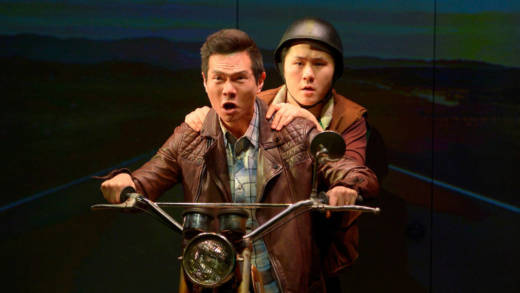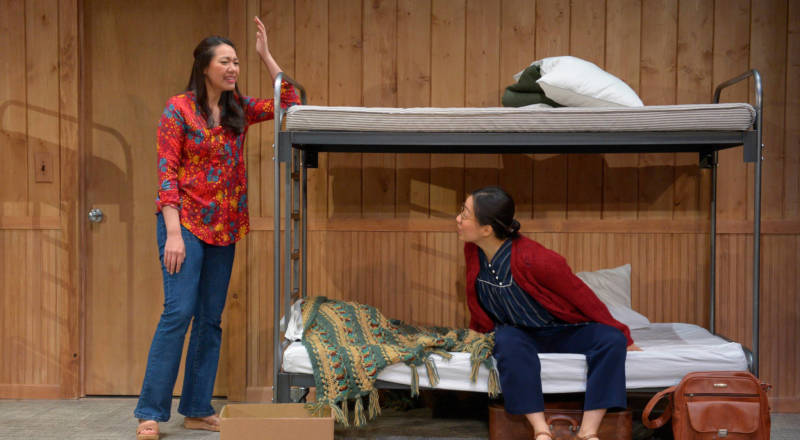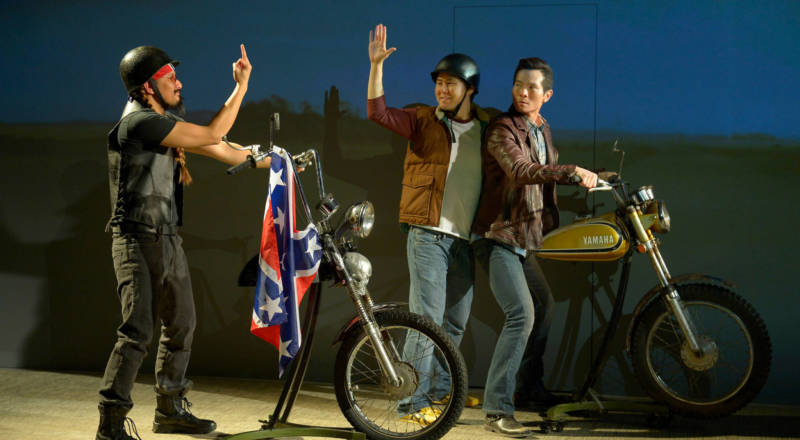Two months ago during the intermission of Star Finch’s terrific Bondage, I spent fifteen absurd minutes with three random theatergoers parsing and debating the meaning of the title of Qui Nguyen’s Vietgone, the new play receiving its Bay Area premiere under Jaime Casteneda’s lively direction at ACT’s Strand Theater.
I thought the title was an obvious, straightforward reference to the fall of Saigon and the plight of South Vietnamese refugees; a woman wearing a fox fur boa thought it was a clever pun on the Vietcong. “Too clever,” countered a balding gentleman in a plaid jacket, only to be counter-countered by a full-bearded fellow in a black cowboy hat and rhinestone boots. He claimed that all our interpretations “could be subsumed under the playwright’s obvious allusion to Sophocles’ Antigone and that the play was probably about burying the dead, exile, the proper way to mourn the loss of family, country, and a way of life.”
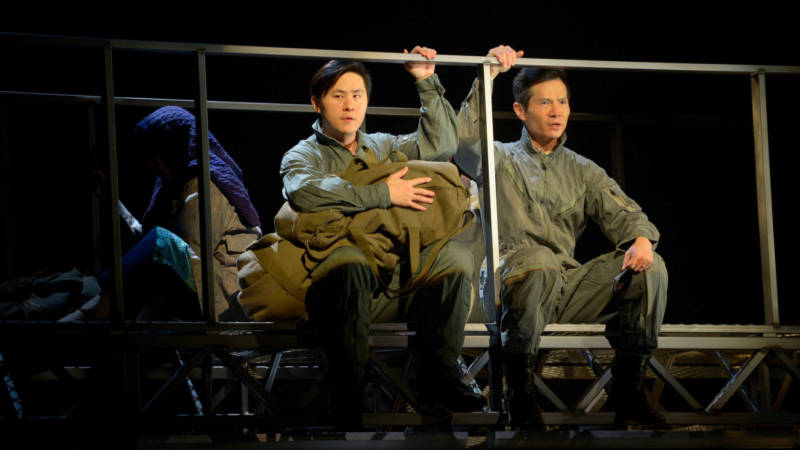
We all nodded in unison. “Impressive,” baldy in plaid murmured. “Well, whatever it means,” fox fur added, “It must have been agony.” Laughing at her witticism, the house manager ushered us in for the second act. It says a great deal about Nguyen’s roving imagination that everything we said was true, though none of us could have guessed how terrific and awful Vietgone would be, perhaps the most unbalanced play in terms of quality I’ve seen in some time — or ever for that matter.
At his best, Nguyen has written a haunting, neo-Brechtian, rap-infused epic that follows party girl Tong and family man-fighter pilot Quang (a brilliant James Seol) as they escape Saigon, end up in a refugee camp in Arkansas, and discover just how vast America is. That it all ends at a dining room table in 2015 is a wonderful demonstration of how every epic takes us home, even when returning home is an impossibility.
Nguyen catches the richness and imperfection of Tong and Quang’s lives in Saigon. Tong is resisting the repeated proposals of the hapless fellow she’s sleeping with from time to time, desperate to escape the expectations of her family to marry and settle down. And Quang is certain of South Vietnamese victory (with American help) or at least not sudden defeat, while yearning to see his young children. When his wife visits him without bringing his son and daughter, he’s devastated, already a ghost to his own life.
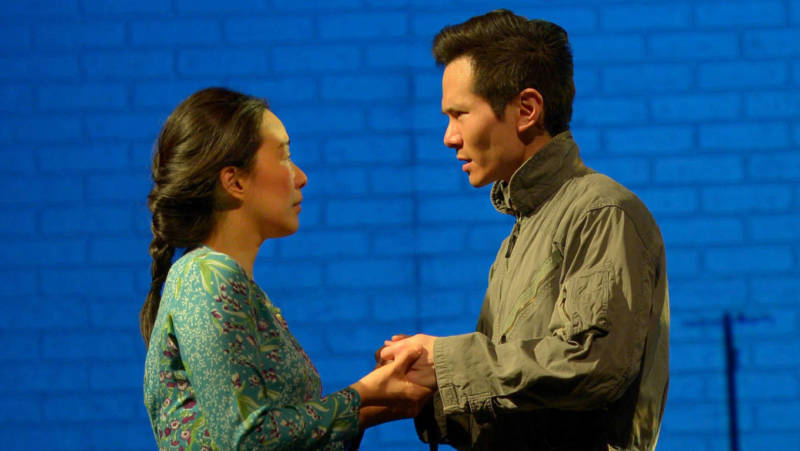
Neither of these two ordinary people are ready for the Vietcong’s victory. Through no fault of their own they’re catapulted out of one world and into another uncertain American one — Tong with her disapproving mother and Quang with his best friend Nhan. Vietgone is deadly effective when it’s at its simplest, just people talking to one another about what they care for and what they’ve lost. And Quang and Tong’s hip-hop soliloquies are a perfect example of this.
